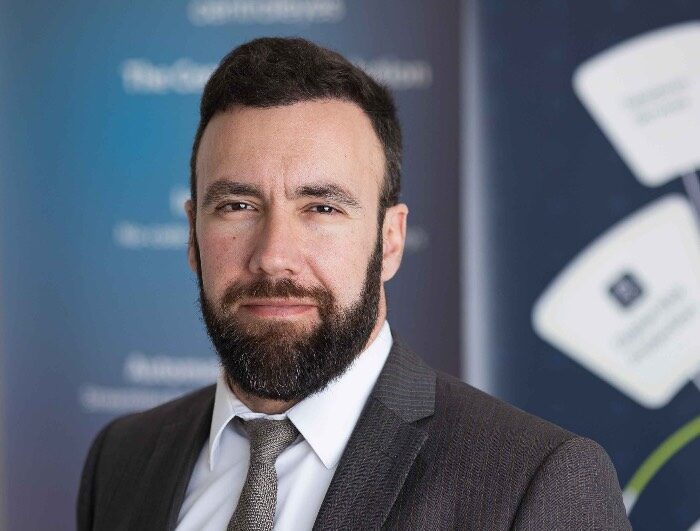Becoming a CEO is the pinnacle of many professionals’ careers, but it’s also a position fraught with challenges. The pressure to lead effectively, drive growth, and manage stakeholders means even the most experienced executives make mistakes.
Many CEOs look back and wish they had done things differently; whether in strategy, leadership, or decision-making. Learning from these regrets can help current and aspiring leaders avoid common pitfalls.
Here are some of the most frequent mistakes CEOs regret and how to avoid them.
Hiring the wrong people
Many CEOs admit to hiring the wrong people, either too quickly, based on gut instinct, or too slowly, out of fear of making a mistake. A poor hire can damage team morale, slow down company progress, and even cost the company financially.
How to avoid it:
- Prioritise culture fit and skills equally: Technical abilities matter, but alignment with company values and work ethic is just as crucial.
- Take your time: Rushed hiring decisions often lead to bad choices. Use a structured interview process with multiple stakeholders involved.
- Don’t hesitate to let go: If an employee isn’t working out despite coaching and support, part ways sooner rather than later.
Ignoring company culture
Some CEOs focus solely on financials and growth, neglecting company culture. Over time, a toxic or disengaged workplace can lead to high turnover, poor performance, and reputational damage.
How to avoid it:
- Lead by example: Demonstrate the values you want to see in your employees.
- Invest in employees: Provide opportunities for growth, recognise achievements, and ensure they feel valued.
- Regularly assess culture: Conduct surveys and have open conversations with employees to ensure a healthy work environment.
Micromanaging instead of delegating
CEOs who try to control every decision quickly find themselves overwhelmed. This approach stifles innovation, demotivates employees, and slows down operations.
How to avoid it:
- Hire people you trust: When you have confidence in your team, it’s easier to delegate.
- Clearly define roles: Make sure employees understand their responsibilities and empower them to make decisions.
- Focus on strategy: A CEO’s role is to set the vision and direction, not manage day-to-day tasks.
Not listening to feedback
Many CEOs regret not listening to employees, customers, or board members early enough. Ignoring valuable input can lead to poor decision-making and missed opportunities.
How to avoid it:
- Create a feedback culture: Encourage open dialogue with employees at all levels.
- Stay close to customers: Regularly engage with clients to understand their needs and expectations.
- Seek mentorship: Other experienced leaders can provide valuable insights that prevent costly mistakes.
Resisting change
Some CEOs get too comfortable with existing strategies and resist adapting to new trends, technologies, or shifts in the market. This can lead to a company falling behind competitors.
How to avoid it:
- Stay informed: Keep up with industry changes and technological advancements.
- Encourage innovation: Foster a company culture where employees feel safe suggesting and experimenting with new ideas.
- Be willing to pivot: If the data suggests a change is needed, act decisively.
Focusing too much on short-term gains
Many CEOs regret prioritising immediate profits over long-term sustainability. Short-term decision-making can damage a company’s future prospects.
How to avoid it:
- Balance growth with stability: While quarterly earnings matter, a sustainable long-term strategy is more important.
- Invest in R&D: Future-proof your company by continually innovating.
- Think beyond shareholders: Consider the long-term impact of decisions on employees, customers, and society.
Failing to take care of personal well-being
CEOs often push themselves to the limit, leading to burnout, poor decision-making, and health issues. Many regret not prioritising self-care.
How to avoid it:
- Set boundaries: Avoid working 24/7 and make time for family, hobbies, and rest.
- Stay physically and mentally healthy: Regular exercise, sleep, and mindfulness can improve clarity and resilience.
- Seek support: Having a mentor, coach, or therapist can help CEOs manage stress effectively.
Underestimating the importance of communication
Poor communication can create confusion, misalignment, and distrust within an organisation. Many CEOs wish they had been more transparent and consistent in their messaging.
How to avoid it:
- Communicate vision clearly: Ensure everyone in the company understands the long-term goals.
- Be open and transparent: Employees appreciate honesty, even when delivering tough news.
- Listen actively: Communication is a two-way street; encourage input from employees and stakeholders.
Overlooking crisis preparedness
Many CEOs regret not having a crisis management plan when unexpected challenges arise; whether economic downturns, PR disasters, or cybersecurity threats.
How to avoid it:
- Develop contingency plans: Have strategies in place for financial downturns, data breaches, or sudden leadership changes.
- Train your team: Ensure key leaders know their roles during a crisis.
- Stay adaptable: Be ready to pivot quickly when challenges arise.
Failing to build a strong network
CEOs who isolate themselves from other business leaders, mentors, and industry experts often miss out on valuable opportunities and insights.
How to avoid it:
- Build relationships: Attend industry events, join professional groups, and stay connected with peers.
- Seek mentorship: Learning from others’ experiences can help avoid common pitfalls.
- Be willing to ask for help: No leader has all the answers; surround yourself with people who can provide guidance.
Every CEO makes mistakes, but the best leaders learn from them and adapt. By hiring wisely, prioritising company culture, delegating effectively, and staying open to change, CEOs can avoid many common regrets.
Leadership is a continuous learning process, and those who remain humble, self-aware, and proactive will set themselves, and their companies, up for long-term success.
Give back to the community: 5 ways business leaders can use their influence to be more philanthropic
Given social media’s rise in recent years, business leaders’ roles as instigators for social change have never been greater.
What CEOs can learn from Ferrari and a children’s hospital
An unusual combination that makes for great insight.
3 strategies to help your team manage stress and stay productive
As a leader, you play a crucial role in creating a workplace culture that prioritises both productivity and employee well-being.
5 key self-development tips every business leader needs to take note of
Self-development can come in the form of better leadership skills, growing a wider network of contacts, and also an improved ...









